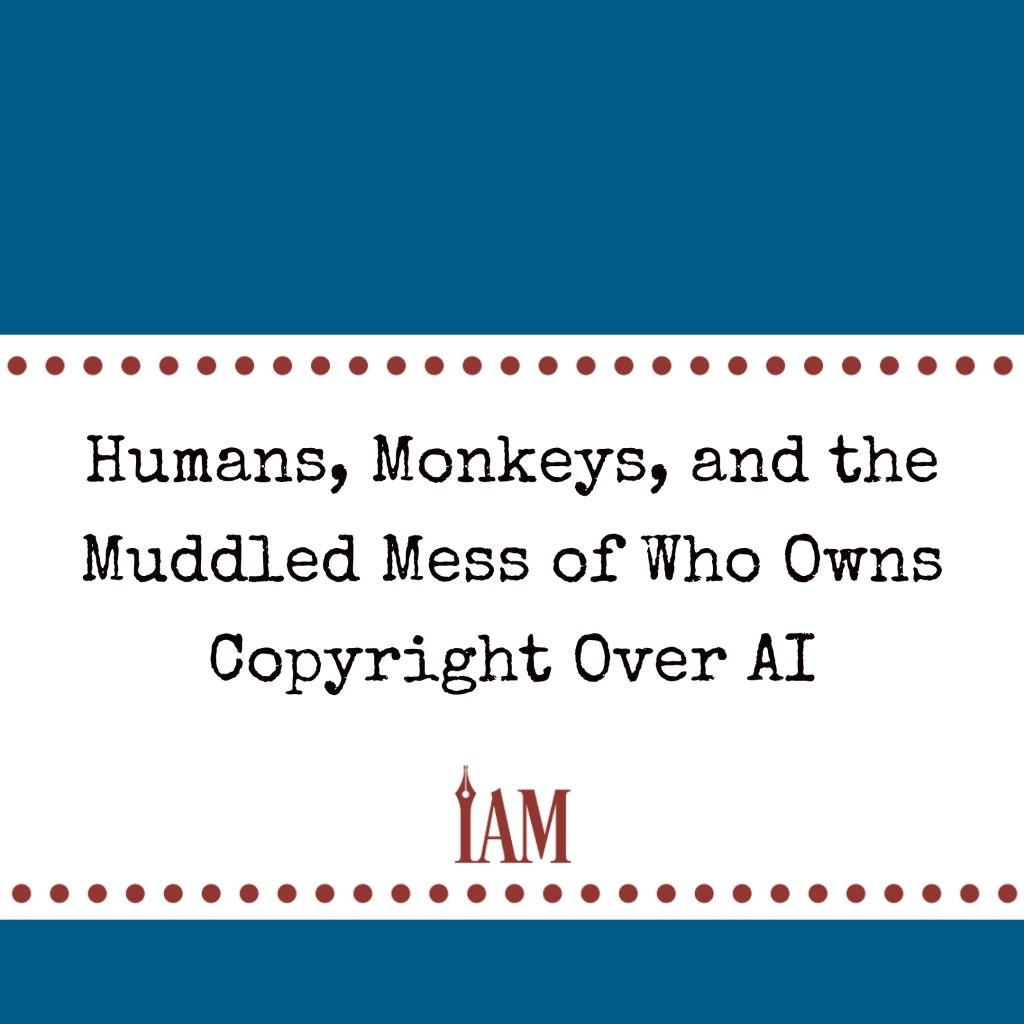Guest Author Ash Roberts Explains Where the Law Stands—for Now
People tend to view copyright of AI-generated material as a settled issue, but that isn’t quite true. When it comes to AI, the legal case—or, more accurately, cases—for copyright is still a highly contested issue.
In the US, copyright happens in two phases.The second you create something, it’s copyrighted. But to enforce that copyright in court, you then have to register it with the US Copyright Office, or USCO (https://copyright.gov/). In most cases that independent authors will encounter, a Digital Millennium Copyright Act, or DMCA, notice is enough to stop copyright infringement. It’s only for lawsuits that registration is required.
Some are concerned about Amazon demanding proof of rights on AI-generated material, but right to use and owning copyright are two different things. We already publish things we don’t have the copyright to. To start, titles aren’t copyrightable, being a “short phrase” which others may have an appropriate need to. You likely don’t own the copyright to your cover either. Typography, background, model—the creators for each disparate part own their respective copyrights, unless those rights are explicitly transferred to you. In almost all cases, what you receive is a license to use it.
The only copyright you, as an author, own is the unique combination of words that make up your story. But you can only copyright material that has “human authorship, with the computer merely being an assisting instrument,” according to Section 313.2 of the Compendium of US Copyright Practices published by the USCO.
The question then becomes to what degree an AI produces its output without human intervention. There hasn’t been much discussion about the amount of prompting and iteration required to get a quality result. Jason Allen, who won an award at the Colorado State Fair with his AI-generated art, claims that he spent eighty hours and nine hundred iterations and evolutions across multiple platforms to create his piece, according to the Washington Post.
The USCO seems willing to acknowledge copyright when the AI output was changed by a human. When reviewing, and ultimately revoking, the copyright for Kristen Kashtanova’s comic, Kahyra of the Dawn, they asked her for details “to show that there was substantial human involvement in the process of creation.” Ultimately, they decided she hadn’t done enough to change the images Midjourney created, although they kept her copyright for the text, which she had written herself.
Two US Senators have asked the USCO to revisit the issue in context of the “monkey selfie” case, in which a crested macaque, Naruto, took photos of himself with a photographer’s camera, which the photographer later published in his book. In 2015, People for the Ethical Treatment of Animals (PETA) sued the photographer for violating Naruto’s rights under the Copyright Act, an argument that was overruled in district court and later dismissed in the 9th Circuit Court in 2018 after PETA appealed the decision. Judges in both courts ruled Congress had not specifically extended copyright law to animals, meaning the monkey held no ownership over the photos he’d taken, as PETA claimed.
Other countries confer copyright of AI-generated material to the programmer. That said, always check the terms of service of the program you’re using. Most will state that they don’t hold ownership over your material and will transfer those rights to you.
Meanwhile, Stephen Thaler, who created his own AI, is suing for copyright of the artwork it generates, claiming the “fruit of the tree” doctrine—that if he owned a fruit tree, he’d own the fruit it produced, the standard that many other countries currently use for AI copyright. Additionally, he argues that, contrary to Naruto, the Supreme Court has ruled when technology makes copyright law ambiguous, it should be interpreted in terms of whether public good is strengthened or weakened.
The copyright status of AI generated material may change soon, but for now the standard requirement for owning copyright in the US is “substantial human intervention”—something to keep in mind the next time you turn to AI for any work you want to label as your own.

